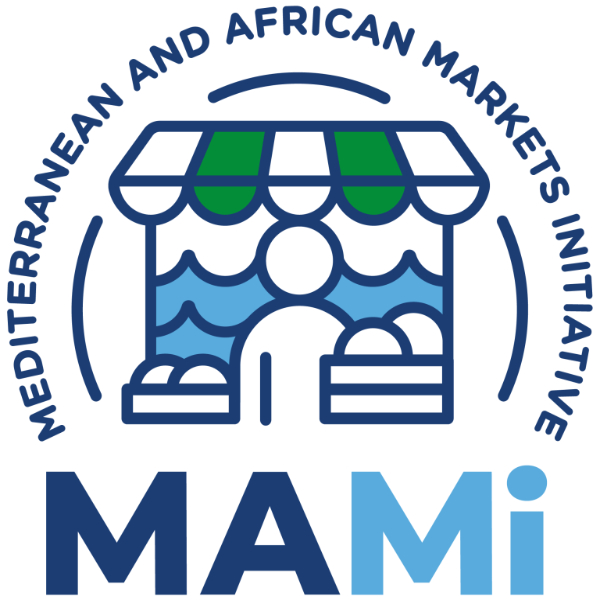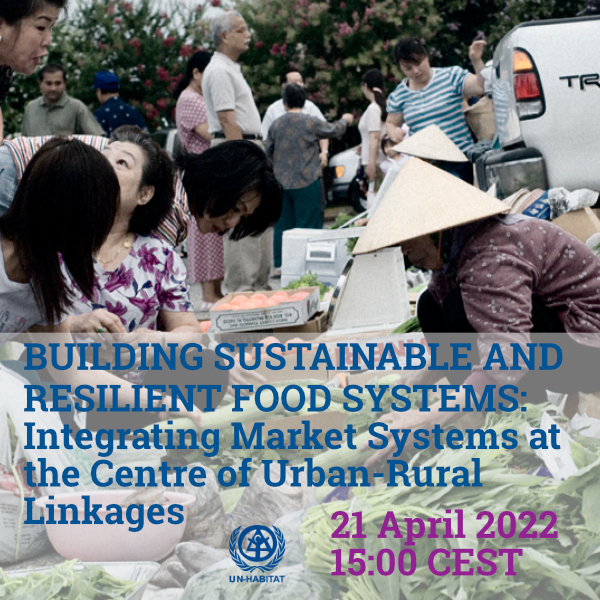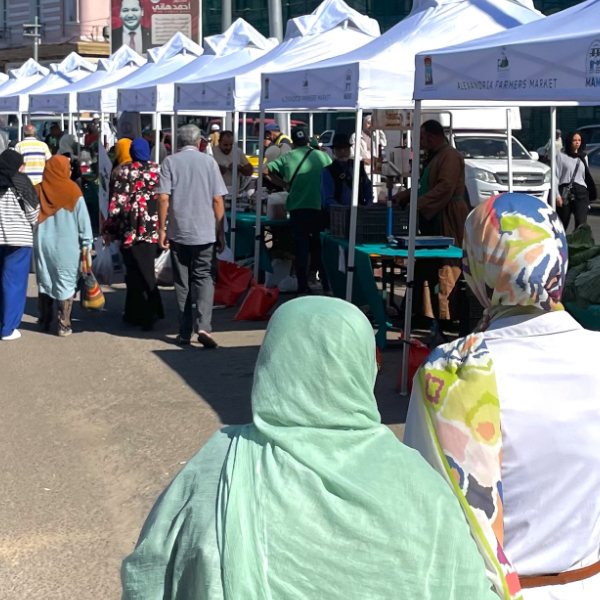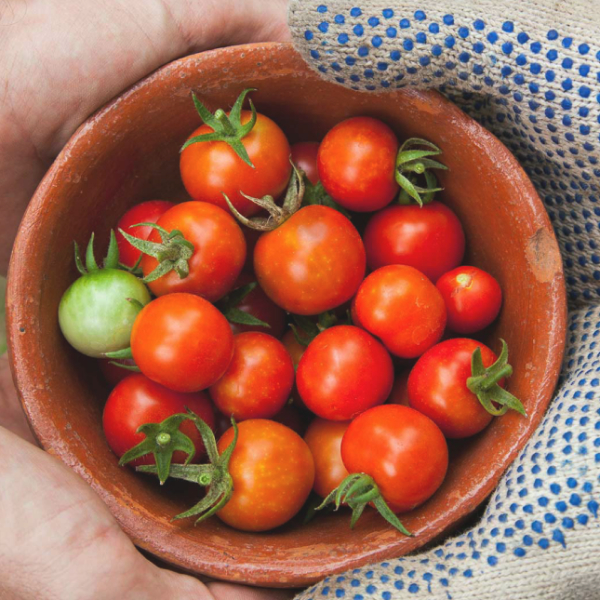Apr 12, 2022
21 April 2022
Join UN Habitat, the World Union of Wholesale markets, the World Farmers Market Coalition, the Market Cities Initiative, United Cities and Local Governments (UCLG), the International Council for Local Environmental Initiatives (ICLEI), and me for a 90 minute deep dive into lessons learned during the distribution challenges of the COVID-19 pandemic at the wholesale market, retail market, and municipal level. Speakers include both intermediaries and market practitioners from global North to South. In particular, this webinar explores the value in taking an ecosystem approach to understand and better equip local food market systems that link town to country.
Get your seat at the (digital) table for this virtual technical consultation: Link
Date: 21 April 2022
Time: 15:00 > 16:30 CEST
Free and open to the registered public (on Zoom)
This jointly organized technical webinar on markets and food systems builds on lessons from the impacts of COVID-19 and ongoing crisis (economic volatility, increased food insecurity, armed conflicts, climate change) affecting food supply chains for all types of food markets and both local and global recognition that food systems must be transformed as part of the transformation of both urban and rural communities to be more resilient, sustainable, and inclusive.
Fresh food markets have been central to human settlements for thousands of years. Food markets are the engines of local economies and among the original public spaces for the growth and renewal of democracy. Markets are the spatial and functional intersection of rural and urban communities, of farmers and consumers, of nature and culture. Territorial markets are essential for the food security of towns and cities and provide smallholders and especially women, young entrepreneurs and Indigenous Peoples with market access. Functional territories depend on functional markets. All the flows of people, good, services, information and capital that define urban-rural linkages flow through the market systems of all societies. In the modern history of urbanization, market systems have evolved in diverse and complex ways to include informal, retail and wholesale private and public markets, and with teleconnections made possible by the internet, food market systems are both physical and virtual, both rooted in places and transcending location. In the last two years markets have been in a state of crisis.
In the last two years food supply chains have been in a state of crisis. 2020 markets came to the center of global attention with the arrival and rapid spread of the Coronavirus pandemic or COVID-19. From the question of the pandemic’s origin in a public market to the centrality of food workers, to the ways markets safely provision communities during phases from initial surges to recovery and adaptation, markets are central. The essential character of food producers and workers in markets to provide healthy food and social protection during the protracted, still ongoing, global pandemic was a subject of multiple events in 2020 and 2021.
The lessons for food markets from early stages of the pandemic continue to be important in 2022. Co-organizers are hosting this webinar to examine the larger role of market systems at the centre of urban-rural flows of goods, services, people, information, and capital. The purpose of the event is to showcase and exchange information on the ways in which policy and practices can be adapted to strengthen the resilience and sustainability of territorial food systems.
Building on recent events including food system dialogues, working groups and coalitions from the UN Food Systems Summit and events during COP26 focused on the food-climate nexus, this event will showcase market actors who are the innovators and pioneers in evolving market systems. Co-organizers of the virtual event are the World Union of Wholesale Markets (WUWM), the World Farmers Markets Coalition (WFMC), and the Market Cities Initiative (MCI), with the support of UN-Habitat, FAO, and three associations of local and regional governments, United Cities and Local Governments (UCLG), Local Governments for Sustainability (ICLEI), and Regions4, a network of subnational governments




